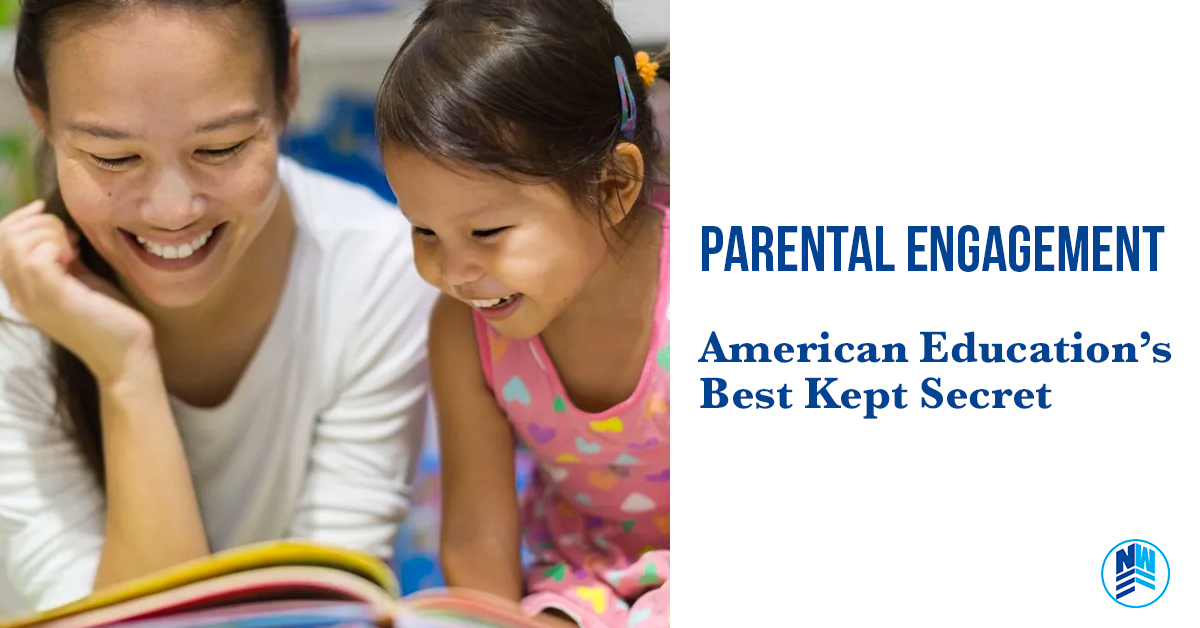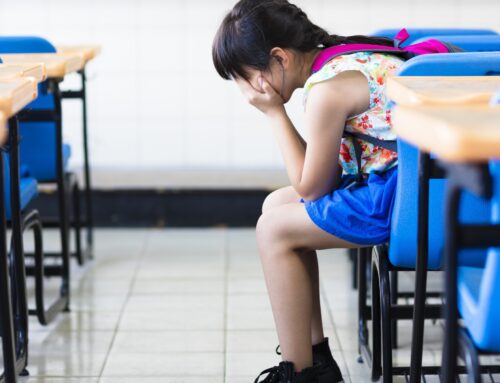
The Role of Parents in Education
Fathers and mothers create new, incredible little human beings. They nurture these tiny people, raising them from infancy to adulthood. However, these open, inquisitive little minds are clean slates. They are empty books waiting for knowledge and wonder to be carefully written there.
How does this occur? Who is primarily responsible for molding and shaping them? From the moment that they are born, children begin to learn and digest new knowledge. Their education starts with their first breath and continues for the rest of their lives. How far are parents responsible for their children’s education, and at what point, if any, can they hand this task off to others?
The Importance of Parents and Family
As the center of the nuclear family, parents have the primary responsibility for their children from conception to adulthood. Thus, parents have a moral and legal obligation to their children and the moral and legal rights to fulfill these obligations as they see fit.
According to Legal Match, “… parental rights are a parent’s rights to make important decisions and to take actions on behalf of their child or children … Parental rights are intended to protect and ensure the well-being of a child or children.”
Therefore, parents must understand what this undertaking entails. Kristina Otterstrom of Lawyers.com explains that parents must meet their children’s basic needs. These include food, clothing, housing, medical care, and education.
How a parent chooses to accomplish these monumental tasks matters. Authoritative parenting, for instance, is characterized by reasonable demands and high responsiveness, according to VeryWell. These parents listen to their kids and provide love and warmth in addition to limits and fair discipline. There may be high expectations, but the children are also offered the resources and support they need to succeed. The psychological impact of involved and careful parenting cannot be overvalued.
Family: The Foundational Unit of Society
Reference.com explains the impact of the family on society: “Experts have described families as the cells that make up the body of society. If these cells are undernourished or become cancerous, the entire body succumbs.”
As the core of the family unit, parents are ultimately responsible for their children. They may opt to enlist help from others—such as family friends, teachers, and religious leaders—to add influence and offer expertise, but parents are where the buck stops.
In a 2010 speech, Jane D. Hill hit the proverbial nail on the head when she stated, “At the end of the day, the most overwhelming key to a child’s success is the positive involvement of parents.”
Psychology, principles of American law, and even common sense tell us that parents are crucial to any child’s education. This article will examine the importance of parental involvement in a child’s schooling, how parents can get involved, and what rights parents have to make sure their kids get the best education possible.
The Involvement of Parents
First Cry Parenting notes, “Parents play the most important role in the overall development of their child … From that first touch and look, to later years, a parent is responsible for making the tiny infant into a well-grown, responsible and caring adult.”
Parental engagement is one of the most important factors in a child’s overall development. This remains true during the educational process. No matter how a parent chooses to educate their kid, it is crucial that they remain active and involved.
The American Journal of Educational Research conducted a fascinating and helpful 2018 case study. This study concluded that parents should play a leading role in supporting their children’s education. The results of the study clearly supported parental involvement and engagement, enhancing the child’s academic results.
Parents’ Involvement Matters
Dena Standley writes, “… whether you homeschool or your kids attend school, their education remains your responsibility as a parent. Whether you have a fantastic school system loaded with amazing teachers or a subpar school system with struggling teachers, the responsibility remains with the parent to ensure your children receive the education they deserve.”
Experts, years of studies, and common sense have affirmed that parental involvement in a child’s education is significant on many levels. Why is this? Why should parents remain active and engaged in their children’s education if teachers and academic experts are already involved?
The answer is simple: Engaged parents are best qualified to make decisions regarding their child’s education.
The Huffington Post notes that parents can bring a different viewpoint to their children’s education. Parents are children’s first teachers and can offer benefits concerning a child’s academic development. Parental involvement in decision-making is a crucial aspect of a well-rounded and child-centered education.
Parents Know Their Children
A parent knows their child inside out. They have a unique understanding of the surrounding community and the relationship between their child and others. Their primary duty as a parent is the care, protection, and productive upbringing of their child. They can see the child’s world in its entirety and how certain educational aspects may be affected or may affect the child outside the classroom. This allows them to offer a specific viewpoint with their child’s best interest at heart.
Homeschooling is an excellent way for parents to be involved in their child’s education, but not the only way. Parents, teachers, schools, and the community should work together to ensure that each child has the best educational opportunity available.
“[Family engagement] is continuous from birth through young adulthood and reinforces learning that takes place in the home, school, and community,” explains the Coalition for Community Schools, “Families should be empowered to be advocates for their own and other children, to ensure that students are treated fairly and have access to learning opportunities that will support their success.”
Involvement Requires Dedication
Parents should be proactive in ensuring that their child is educated in an environment that welcomes parental input and values familial insight. In addition, they should research and determine the best educational opportunities available to their children.
“The way schools care about children is reflected in the way schools care about the children’s families,” writes Dr. Joyce L. Epstein, “If educators view children simply as students, they are likely to see the family as separate from the school. That is, the family is expected to do its job and leave the education of children to the schools. If educators view students as children, they are likely to see both the family and the community as partners with the school in children’s education and development.”
Ensuring a quality education in every area is a daunting task. However, it will not magically happen on its own. Parents know the nitty-gritty, the ins and outs, the strengths and weaknesses of their children better than anyone else. They understand the best learning environments, learning styles, interests, and failings of their offspring.
Parents must dedicate themselves to protecting and providing for their children in the area of education. This requires a commitment to research and study. They must evaluate each child and the options available.
Educational Options for Parental Engagement
Homeschooling is an excellent educational strategy with optimum parental involvement.
To productively and effectively homeschool, parents must prepare themselves to ensure that they are qualified to offer their children a quality education. In addition, they must seek out resources and supplemental aides to bridge the gaps in their own capabilities.
A homeschooled child should receive an excellent and well-rounded education. It is the parents’ job to make sure that this happens from home.
Homeschool.com is a wonderful resource that offers insights and helpful suggestions for parents. Some of these include:
- Research state homeschooling laws and fulfill their requirements
- Understand each child’s learning styles and what motivates them
- Research a curriculum that supports your homeschool goals and each student’s learning styles.
- Organize the homeschooling location, the curriculum, and a plan for daily homeschooling. Note the family’s daily schedule for optimum results
- Assess each child’s individual needs
- Provide a truly personalized education plan
- Allow learning to be self-paced
- Reduce the fear of failure
- Create a distraction-free learning environment.
- Build academic confidence by strengthening weak areas and celebrating strengths.
Sometimes, homeschooling is not an option. Other times, parents believe a more conventional educational model would be better for their child. But, yet again, it is the parent’s responsibility to do the necessary research and leg work to ensure that their child gets the best education possible.
GreatSchools offers this brief list of suggestions that parents may find helpful in their search for the best educational options in their area:
- Does the school meet my basic needs?
- What is the student-teacher ratio?
- How are behavior problems handled?
- What distinguishes your school from others?
- How much homework is there?
- How do you support children with different learning styles and needs?
- What after-school activities are available?
- What’s the physical environment?
- Finally, consider safety when looking at the school’s physical layout.
- How are teachers supported and held to a high standard?
- What are the school’s expectations for its students?
This list is by no means comprehensive. However, it can offer insight and highlight possible concerns for parents actively seeking out the best educational choice(s) for their children.
Other things to consider may be religious influence or family size. How do the educational options on the shortlist line up with the family’s needs in these areas? Each family has unique requirements, and it is the job of the parents to consider all the variables.
Offering the best educational options for their children always requires sacrifice and hard work on the part of the parents. From research to involvement, parents must be actively engaged in their children’s education.
The Legal Rights and Responsibilities of Parents
Parents are the gatekeepers of their children. From basic needs to educational decisions and everything in between, parents alone hold the ultimate responsibility of raising their children from infancy to adulthood.
Other institutions in society may be helpful aids, valuable resources, or may offer brief periods of respite. However, none of these can or should replace parental oversight and involvement.
Parental Rights
Parents should always maintain and protect their parental rights. They should never surrender these rights to others, including the state. According to the US Ninth Circut Court, parents and children possess a constitutionally protected liberty concerning their natural relationship, including rights and responsibilities. (The one exception to this is if the parents(s) are proven to be delinquent or to pose a danger to their children.)
Parents should guard their sacred duty tenaciously. They hold the ultimate key to their children’s well-being, which is a valuable and treasured right. In May v. Anderson, The United States Supreme Court noted that a parent’s right to “the companionship, care, custody, and management of his or her children” is an interest “far more precious” than any property right.
Parents have a Constitutional right to be the decision-makers when it comes to their children. They should hold the government accountable for its engagement in education and insist that the interests of the children come first.
How Parents Can Help
Parents have many options available to them concerning their ability to hold the government accountable. Below are some helpful suggestions on specific actions parents may take in order to advocate for their children’s best interests:
Local Level:
- Attend school board meetings
- Review classroom curriculum
- Hold rallies
- Sign petitions
- Run for school board or other local offices
State and Federal Levels:
- Petition for better school choices
- Vote for representatives who uphold parental rights
- Call or write representatives, etc.
Ultimately, each parent should use their constitutionally protected rights of free speech, peaceful assembly, voting, etc., to influence and even limit the government’s involvement in education.
Parents should understand that public schools are tax-payer funded. This means that these public institutions are accountable to taxpayers. In order for this fact to matter, parents must act. They must engage. They must become involved.
Homeschooling parents should know and understand their legal rights concerning the education of their children. When the law conflicts with their ability to invest in their children’s education, parents must be proactive to raise awareness and change the law. The right to spearhead and guide their children’s education is a fundamental one.
The government is responsible for upholding the parent’s right to choose how to educate with their child’s best interest at heart. The parents have the responsibility to protect that right and to hold their government accountable.
Ultimately, parents must utilize that right and actively involve themselves in the education of their children. This is their sacred responsibility and one that has lasting consequences.





[…] To learn more about the impact of parental engagement in a child’s life, read about The Role of Parents in Education. […]
[…] parental involvement plays such a big role in student success, these parents see their children thrive regardless of education […]
[…] Before making an effort, perhaps you’d like to know why your valuable time and energy are critical to your child’s education. Your student has teachers, curriculum, school activities, extracurricular events, and so many other ways to enrich their education. You already buy school supplies, do drop-offs and pick-ups, and drive them around to after-school practices. Why should you get more involved, too? […]
[…] Having parents involved in any area of a child’s education is beneficial. Social emotional learning (SEL) is no exception. In fact, SEL is a perfect, even crucial, aspect for parents to involve themselves and come alongside the school in cooperation. Learning proper social and emotional skills begins in the home from infancy, and parents enjoy a unique opportunity to set a solid foundation for their student. […]
[…] else cares for, loves, and wants the absolute best for your child as much you do? This makes you the most invested, qualified person to propel your kid toward success. The Waterford Center for Education notes that parental […]
[…] Kids are born with the building blocks for learning. Education is a natural part of life — not something that adults have decided is a good idea. It’s merely our job to help our kids maximize that instinct and ensure that life doesn’t steal the wonder and joy of learning away from curious minds! Education is everything from book learning to experiential learning, and as parents, we must be involved at every step. […]
[…] Having parents involved in any area of a child’s education is beneficial. Social emotional learning (SEL) is no exception. In fact, SEL is a perfect, even crucial, aspect for parents to involve themselves and come alongside the school in cooperation. Learning proper social and emotional skills begins in the home from infancy, and parents enjoy a unique opportunity to set a solid foundation for their student. […]